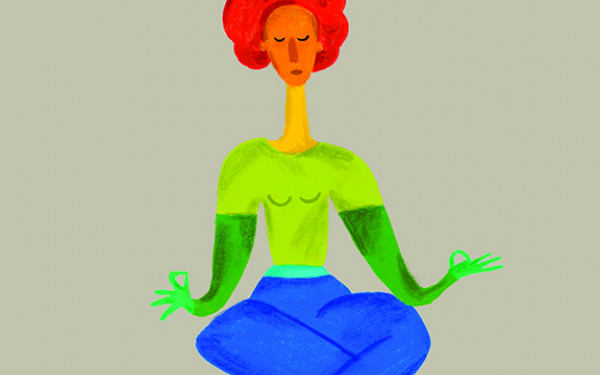Concordia’s Conversation Cafés create “brave space” for open exchange
Sixty minutes to explore what it means to be human
There’s a global health crisis, the months are growing colder, and you’ve been cooped up inside for the last eight months—if you feel like you’re missing out on human connection, you’re not alone.
Look no further than Concordia’s Conversation Cafés, where you’re sure to find a lively collision of perspectives. These hour-long forums are held weekly to discuss contemporary hot topics in an environment that models itself on openness, curiosity and vulnerability, says Rev. Ellie Hummel, chaplain coordinator at the Concordia Multi-faith and Spirituality Centre.
Designed with storytelling and self-expression in mind, guest lecturers are invited every Tuesday to exchange with students on a range of topics spanning from spirituality, religion, art, poetry, psychology, and more—all with the goal of highlighting the humanity behind each story.
“It’s learning about people and their layers of being human,” says Ashely Crouch, interfaith facilitator at the MFSC. The idea for the Cafés came to her while she was listening to a podcast called On Being, which explores human existence and spirituality in a similar guest-feature format. But rather than being lectures, the Café sessions are open-ended, collaborative discussions that are meant to plant the seeds for self-reflection.
“We want people to feel inspired and hopeful at the end of the conversation and have a sense that they can make a difference somehow,” says Crouch. She and Hummel have worked to create a space where participants can feel comfortable feeling discomfort. Rather than providing conclusive answers to the dilemmas of a given topic, normalizing self-expression, curiosity, and wonder for the world as a tool for self-discovery is a goal of the Café, says Hummel.
“We want people to feel inspired and hopeful at the end of the conversation and have a sense that they can make a difference somehow.” —Ashely Crouch
“Some people actually prefer to talk about a brave space,” she says. Safe spaces imply a sort of passivity, she adds, whereas the act of confronting one’s own biases and experiences is an active act of responsibility. “We want people to ask: ‘Who am I and how do I relate to the world?’”
The Café sessions first started over a year ago in the MFSC lounge, long before the coronavirus became an unspoken fact of everyday life. But the transition to online hangouts came with one obvious uptick: the possibility of a wider variety of guest speakers.
“The exciting thing about Zoom is, we have had people on who wouldn’t have physically been able to come,” says Hummel. “We wouldn’t have been able to fly them in. People might be more willing now to join us from the Southern U.S. or Egypt or wherever for an hour.”
Students and scholars alike have logged on from different corners of the world for the Cafés these past few months, she says, some even calling the MFSC their second home. A bigger roster with more diversity in voices means exciting new possibilities for the spring term, as the Café hosts continue on their goal to foster a space that is hospitable, eye-opening, and stimulating.
“We really want to meet people where they’re at,” says Crouch. She means spiritually—but the Café’s format lending itself so successfully to online platforms means you’re welcome metaphysically, too.







